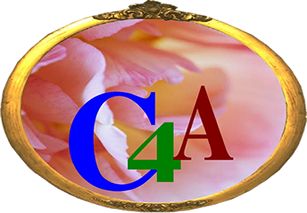|
CONGRATULATIONS |
|
In,
April 13, 2009, President Obama has directed and announced a change
in US policy towards Cuba at the Daily Press Briefing. A series of
steps be taken to reach out to the Cuban people to support their desire
to enjoy basic human rights and to freely determine their country’s
future. The native Amerindian population of Cuba began to decline after the European discovery of the island by Christopher COLUMBUS in 1492 and following its development as a Spanish colony during the next several centuries. The most important Cuban mineral economic resource is nickel for Natural resources. Cuba has the second largest nickel reserves in the world after Russia. Sherritt International, a Canadian energy company, operates a large nickel mining facility in Moa. Another
leading mineral resource is cobalt, a byproduct of nickel mining operations.
Cuba is the fifth largest producer of refined cobalt in the world.
Recent oil exploration has revealed that the North Cuba Basin could
produce approximately 4.6 billion barrels (730,000,000 m3) to 9.3
billion barrels (1.48×109 m3) of oil. In 2006, Cuba started to test-drill
these locations for possible exploitation. On October 28, 1962, the world's fear removed and peace that thinking better of prolonging his challenge to the United States, the Russian Premier conceded to President Kennedy's demands by ordering all Soviet supply ships away from Cuban waters and agreeing to remove the missiles from Cuba's mainland. After several days of teetering on the brink of nuclear holocaust, the world breathed a sigh of relief and peace. According to the State Department, Cuba remains on the list because it opposes the global war on terrorism, supports members of two Colombian insurgent groups, the Revolutionary Armed Forces of Columbia (FARC) and the National Liberation Army (ELN), and provides safe haven to several Basque ETA members from Spain. But some experts say there is little evidence to support the State Department's allegations. Felix Martin, an assistant professor at Florida International University's Cuban Research Institute, also says that while experts say the United States wants regime change, "the most important objective of the Cuban government is to remain in power at all costs," says . Fidel Castro has been an inspiration for Latin American leftists such as Venezuelan President Hugo Chavez and Bolivian President Evo Morales, who have challenged U.S. policy in the region. Experts say the issues preventing normalization of U.S.-Cuba relations include the following:
Currently, Cuba economy is divided into the following revenue streams:
Per
Florida International University's Martin, Venezuela
and
Cuba have a great relationship.
In October 2000, Chavez and Castro signed the Integral
Cooperation Accord, an agreement that specified an exchange of Venezuelan
oil for Cuban goods and services. Venezuela now sells Cuba some 90,000
barrels of crude oil daily at preferential prices.
Many Cuban-Americans based in Florida and they are looking forward to have economic exchanges include other economic sectors with U.S to give the opportunity/access to U.S-Cuba market although U.S. agricultural groups have already deal with Cuba. April
13, 2009, President
Obama signaled an intention to remove travel and remittance restrictions
during his campaign, which he implemented on The State Department
is conducting a Cuba policy review led by Assistant Secretary of State
Thomas Shannon. Catch4all.com, Sandra Englund, rev. April 25, 2009. References: The
White House The
World Factbook - Cuba The
Cuban Missile Crisis, October 18-29, 1962 wikipeia |
|
Click
to see 787 Dreamliner You
Will Never Forget Dreamliner 787
Positive
2003 ||
Positive
2004 || Positive
2005 |Positive
2006 |Positive
2007 | Thank you
for visiting Catch4all.com. Please be sure bookmark our site.
Since 1998 ©Catch4all.com. All rights reserved. |

